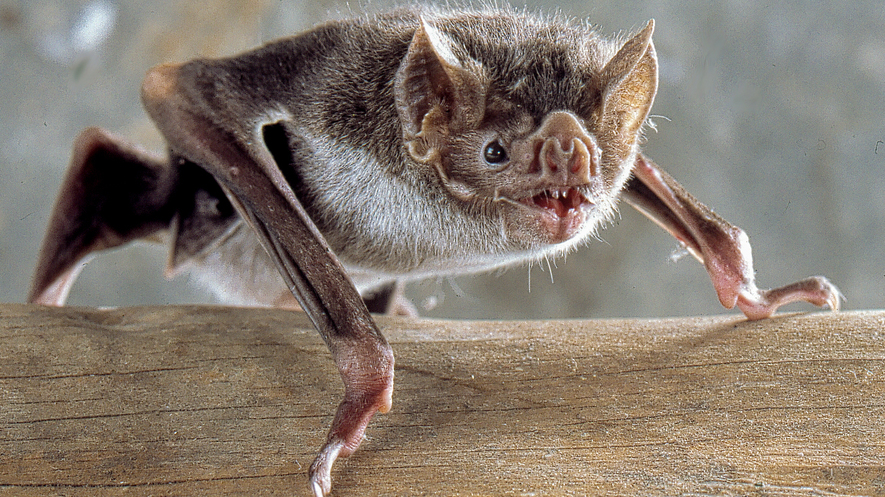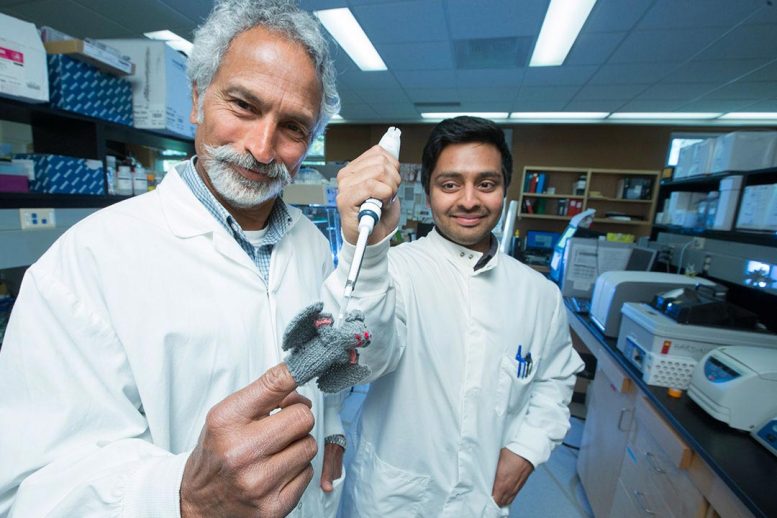SARS-CoV-2 Coronavirus Research: Study Shows How “Extraordinary Immunity” Explains Why Bats Harbor Coronaviruses Without Getting Any Illnesses
Source: SARS-CoV-2 Coronavirus Research May 07, 2020 4 years, 11 months, 2 weeks, 6 days, 8 hours, 59 minutes ago
SARS-CoV-2 Coronavirus Research: Researchers from the University of Saskatchewan (USask) research team has uncovered how bats can carry the Middle East respiratory syndrome (MERS) coronavirus without getting sick through Bat-virus adaptation, a research that could shed light on how coronaviruses make the jump to humans and other animals.

To date, coronaviruses such as MERS, Severe Acute Respiratory Syndrome (SARS), and more recently the COVID19-causing SARS-CoV-2 virus, are thought to have originated in bats. While these viruses can cause serious and often fatal disease in people, for reasons not previously well understood, bats seem unharmed.
USask microbiologist Dr Vikram Misra told Thailand Medical News, “The bats do not get rid of the virus and yet do not get sick. We wanted to understand why the MERS virus doesn’t shut down the bat immune responses as it does in humans.”
The study findings just published in
Scientific Reports, demonstrates for the first time that cells from an insect-eating brown bat can be persistently infected with MERS coronavirus for months, due to important adaptations from both the bat and the virus working together.
https://www.nature.com/articles/s41598-020-64264-1
 USask researcher Vikram Misra (left) and former PhD student Arinjay Banerjee.
USask researcher Vikram Misra (left) and former PhD student Arinjay Banerjee.
Credit: Dave Stobbe for the University of Saskatchewan
Dr Misra, corresponding author on the paper added, “Instead of killing bat cells as the virus does with human cells, the MERS coronavirus enters a long-term relationship with the host, maintained by the bat’s unique ‘super’ immune system. SARS-CoV-2 is thought to operate in the same way.”
Dr Misra says the team’s work suggests that stresses on bats such as wet markets, other diseases, and possibly habitat loss may have a role in coronavirus spilling over to other species.
He added, “When a bat experiences stress to their immune system, it disrupts this immune system-virus balance and allows the virus to multiply.”
The study was carried out at USask’s Vaccine and Infectious Disease Organization ie the International Vaccine Centre (VIDO-InterVac), one of the world’s largest containment level 3 research facilities, by a team of researchers from USask’s Western College of Veterinary Medicine and VIDO-InterVac.
VIDO-InterVac scientist Dr Darryl Falzarano, who co-led the bat study, developed the first potential treatment for MERS-CoV, and is leading VIDO-InterVac’s efforts to develop a vaccine against COVID-19.
Dr Falzarano commented, “We see that the MERS coronavirus can very quickly adapt itsel
f to a particular niche, and although we do not completely understand what is going on, this demonstrates how coronaviruses are able to jump from species to species so effortlessly.”
To date, the SARS-CoV-2 virus has infected more than 3.78 million people worldwide and killed seven per cent of those infected. In contrast, the MERS virus infected nearly 2,500 people in 2012 but killed one in every three people infected. There is no vaccine for either SARS-CoV-2 or MERS. While camels are the known intermediate hosts of MERS-CoV, bats are suspected to be the ancestral host.
It has been observed that coronaviruses rapidly adapt to the species they infect, but little is known on the molecular interactions of these viruses with their natural bat hosts. A 2017 USask-led study showed that bat coronaviruses can persist in their natural bat host for at least four months of hibernation.
Upon exposure to the MERS virus, bat cells adapt not by producing inflammation-causing proteins that are hallmarks of getting sick, but rather by maintaining a natural antiviral response, a function which shuts down in other species, including humans. Simultaneously, the MERS virus also adapts to the bat host cells by very rapidly mutating one specific gene.
Working together, these adaptations result in the virus remaining long-term in the bat but being rendered harmless until something such as disease or other stressors upsets this delicate equilibrium.
The researchers will next turn their focus to understanding how the bat-borne MERS virus adapts to infection and replication in camelid (a group of even-toed ungulates that includes camels) and human cells.
Dr Misra added, “This information may be critical for predicting the next bat virus that will cause a pandemic.”
For the latest
SARS-CoV-2 Coronavirus Research, keep logging to Thailand Medical News.
A Call For Help! Please help support to sustain this website and all our efforts to propel further research and also various international community projects by making a donation. Donations are accepted via paypal. https://www.thailandmedical.news/p/sponsorship

